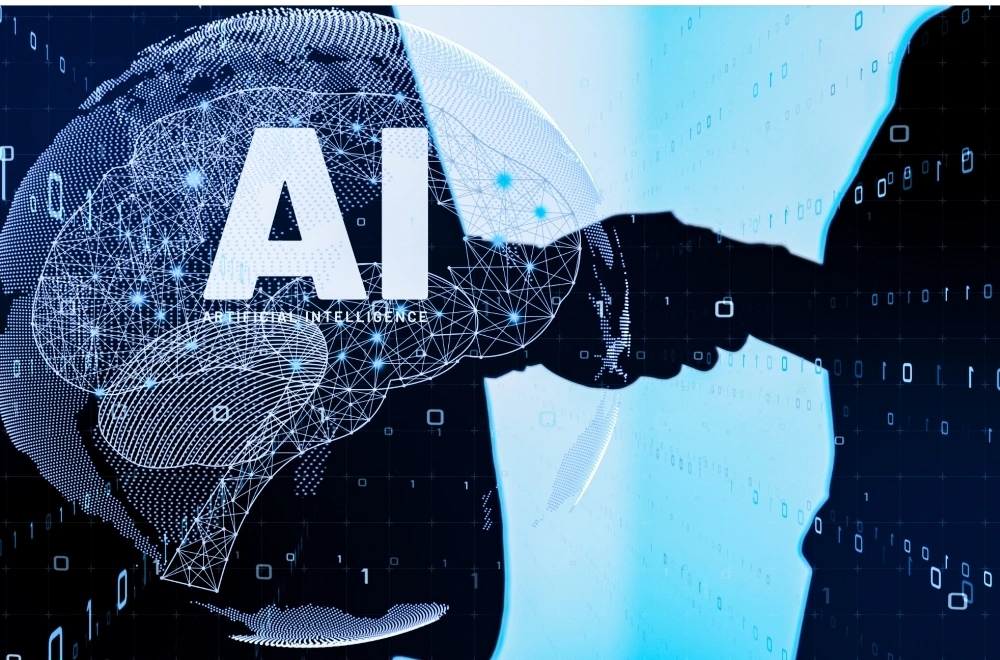Introduction
Artificial Intelligence (AI) has rapidly evolved from a futuristic concept to an integral part of our daily lives. From voice assistants like Siri and Alexa to recommendation algorithms on Netflix and Amazon, AI is reshaping how we live, work, and interact. Its applications span across industries, including healthcare, education, transportation, finance, and entertainment. As AI continues to advance, its influence on everyday life grows more profound, making tasks easier, faster, and more efficient.
This article explores the various ways AI is transforming everyday life, highlighting key applications, benefits, and future possibilities.
1. AI in Personal Assistants and Smart Homes
One of the most noticeable impacts of AI is in personal assistants and smart home technology.
Voice-Activated Assistants
Siri, Alexa, and Google Assistant use natural language processing (NLP) to understand and respond to voice commands.
They can set reminders, answer questions, control smart devices, and even make purchases.
Smart Home Automation
AI-powered thermostats like Nest learn user preferences to optimize heating and cooling.
Smart security systems (e.g., Ring, Arlo) use facial recognition to detect familiar faces and alert homeowners of suspicious activity.
AI-driven appliances (e.g., smart fridges, robotic vacuums like Roomba) automate household chores.
Benefits:
Convenience and time-saving.
Energy efficiency through optimized usage.
Enhanced security with real-time monitoring.
2. Artificial Intelligence in Healthcare
Artificial Intelligence is revolutionizing healthcare by improving diagnostics, treatment, and patient care.
Medical Diagnostics
Artificial Intelligence algorithms analyze medical images (X-rays, MRIs) to detect diseases like cancer earlier than human doctors.
IBM Watson Health assists in diagnosing rare conditions by analyzing vast medical databases.
Personalized Medicine
Artificial Intelligence predicts patient responses to treatments based on genetic and lifestyle data.
Apps like Ada Health provide AI-driven symptom analysis and medical advice.
Wearable Health Tech
Devices like Apple Watch and Fitbit use AI to monitor heart rate, sleep patterns, and detect irregularities (e.g., atrial fibrillation).
Benefits:
Faster and more accurate diagnoses.
Personalized treatment plans.
Remote patient monitoring reduces hospital visits.
3. Artificial Intelligence in Transportation
From self-driving cars to traffic management, Artificial Intelligence is making transportation safer and more efficient.
Autonomous Vehicles
Companies like Tesla, Waymo, and Uber use AI for self-driving technology.
AI processes real-time data from sensors and cameras to navigate roads safely.
Traffic Optimization
AI-powered systems (e.g., Google Maps, Waze) analyze traffic patterns to suggest the fastest routes.
Smart traffic lights adjust signals in real-time to reduce congestion.
Ride-Sharing and Delivery Services
Uber and Lyft use Artificial Intelligence to match drivers with passengers efficiently.
Artificial Intelligence optimizes delivery routes for companies like Amazon and DoorDash.
Benefits:
Reduced accidents with autonomous driving.
Lower fuel consumption due to optimized routes.
Faster and more reliable transportation services.
4. Artificial Intelligence in Finance and Banking
The financial sector leverages Artificial Intelligence for fraud detection, customer service, and investment strategies.
Fraud Detection
AI analyzes transaction patterns to flag suspicious activities in real-time.
Banks use machine learning to prevent identity theft and unauthorized transactions.
Chatbots and Virtual Assistants
Artificial Intelligence chatbots (e.g., Bank of America’s Erica) handle customer inquiries, process transactions, and provide financial advice.
Algorithmic Trading
AI-driven trading platforms (e.g., QuantConnect, Alpaca) analyze market trends to execute high-frequency trades.
Personal Finance Management
Apps like Mint and Robinhood use AI to track spending, suggest budgets, and recommend investments.
Benefits:
Enhanced security against fraud.
24/7 customer support via chatbots.
Smarter investment decisions with predictive analytics.
5. AI in Retail and E-Commerce
AI is transforming how we shop by personalizing experiences and streamlining logistics.
Personalized Recommendations
Amazon, Netflix, and Spotify use AI to suggest products, movies, and music based on user behavior.
Automated Customer Service
AI chatbots handle returns, track orders, and answer FAQs (e.g., Zendesk, LivePerson).
Cashierless Stores
Amazon Go stores use AI-powered cameras and sensors for checkout-free shopping.
Inventory and Supply Chain Optimization
AI predicts demand to optimize stock levels and reduce waste.
Benefits:
More tailored shopping experiences.
Faster checkout processes.
Reduced operational costs for businesses.
6. AI in Education
AI is enhancing learning experiences through personalized education and automation.
Adaptive Learning Platforms
Tools like Khan Academy and Duolingo adjust lessons based on student performance.
Automated Grading
AI evaluates essays and multiple-choice tests, saving teachers time.
Virtual Tutors
AI-powered tutors (e.g., Squirrel AI) provide one-on-one assistance in subjects like math and science.
Benefits:
Personalized learning paths for students.
Reduced administrative workload for educators.
Increased accessibility to quality education.
7. AI in Entertainment and Social Media
AI shapes content creation, recommendations, and user engagement.
Content Recommendations
YouTube, TikTok, and Instagram use AI to curate feeds based on user preferences.
AI-Generated Content
Tools like ChatGPT, DALL-E, and Deepfake create text, images, and videos.
Gaming
AI enhances NPC (non-player character) behavior in games for more realistic interactions.
Benefits:
More engaging and relevant content.
Faster content creation for creators.
Enhanced gaming experiences.
Challenges and Ethical Considerations
While AI offers immense benefits, it also raises concerns:
Privacy Risks: AI collects vast amounts of personal data.
Job Displacement: Automation may replace certain jobs.
Bias in AI: Algorithms can reflect human biases if not properly trained.
The Future of AI in Everyday Life
AI will continue to evolve, with advancements in:
General AI: More human-like reasoning and problem-solving.
AI in Robotics: More sophisticated home and industrial robots.
AI and IoT Integration: Smarter cities with interconnected AI systems.
Conclusion
AI is no longer a distant technology—it is deeply embedded in our daily routines, making life more convenient, efficient, and personalized. From healthcare to transportation, finance to entertainment, AI’s impact is undeniable. While challenges remain, responsible development and ethical use of AI will ensure it continues to improve our lives in meaningful ways.
As AI technology advances, its role in everyday life will only expand, shaping a future where intelligent systems work seamlessly alongside humans to create a smarter, more connected world.
